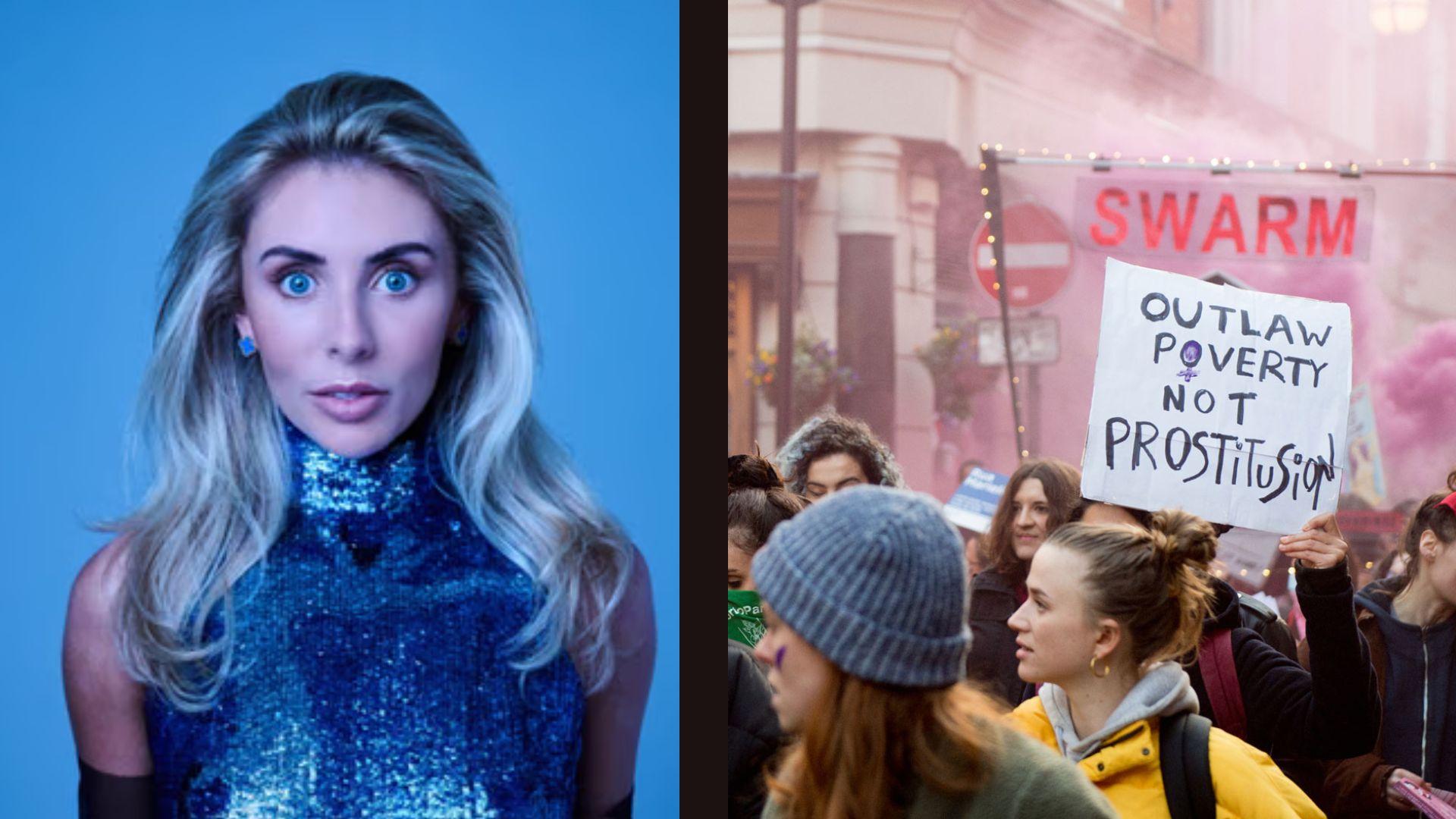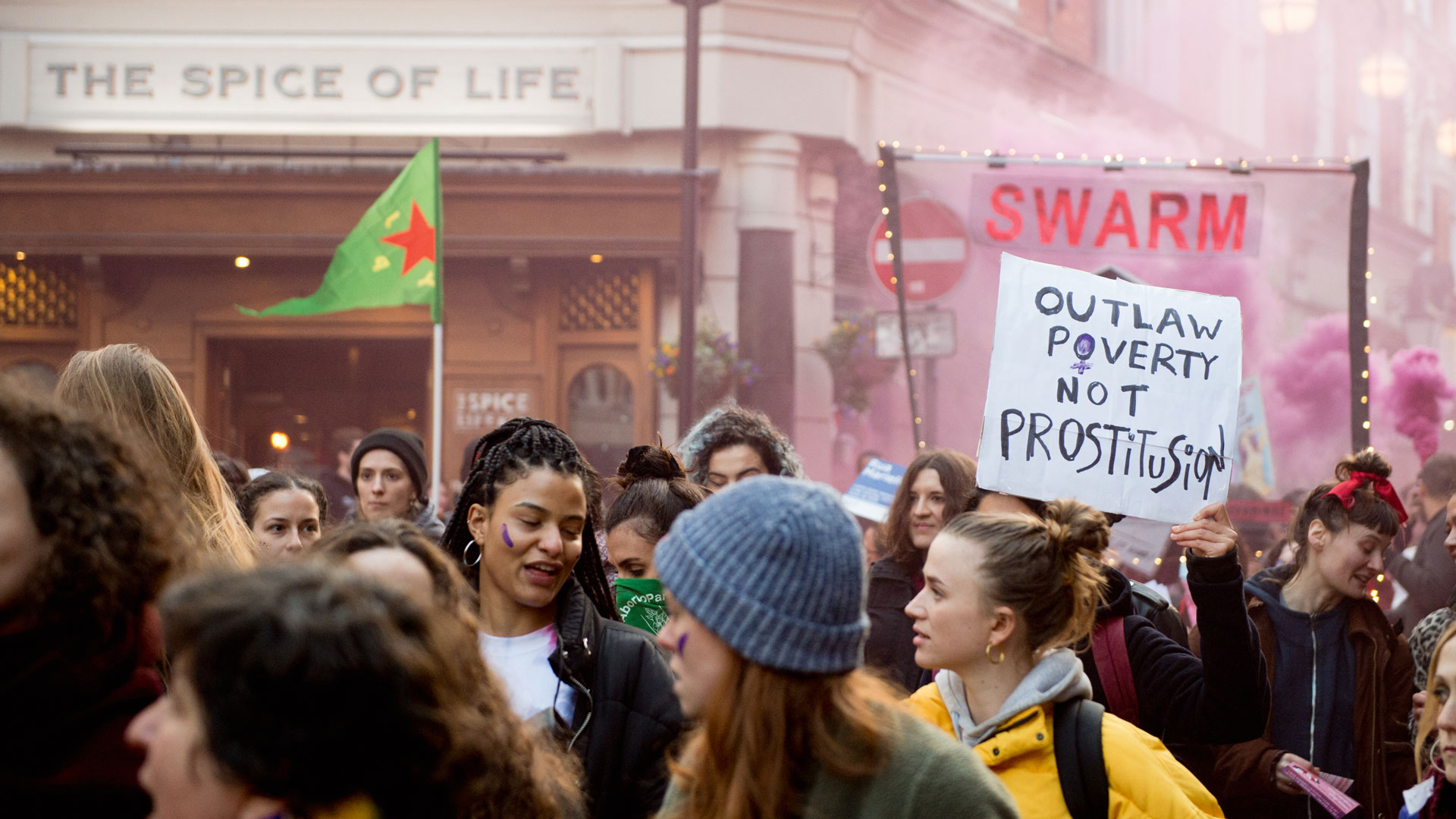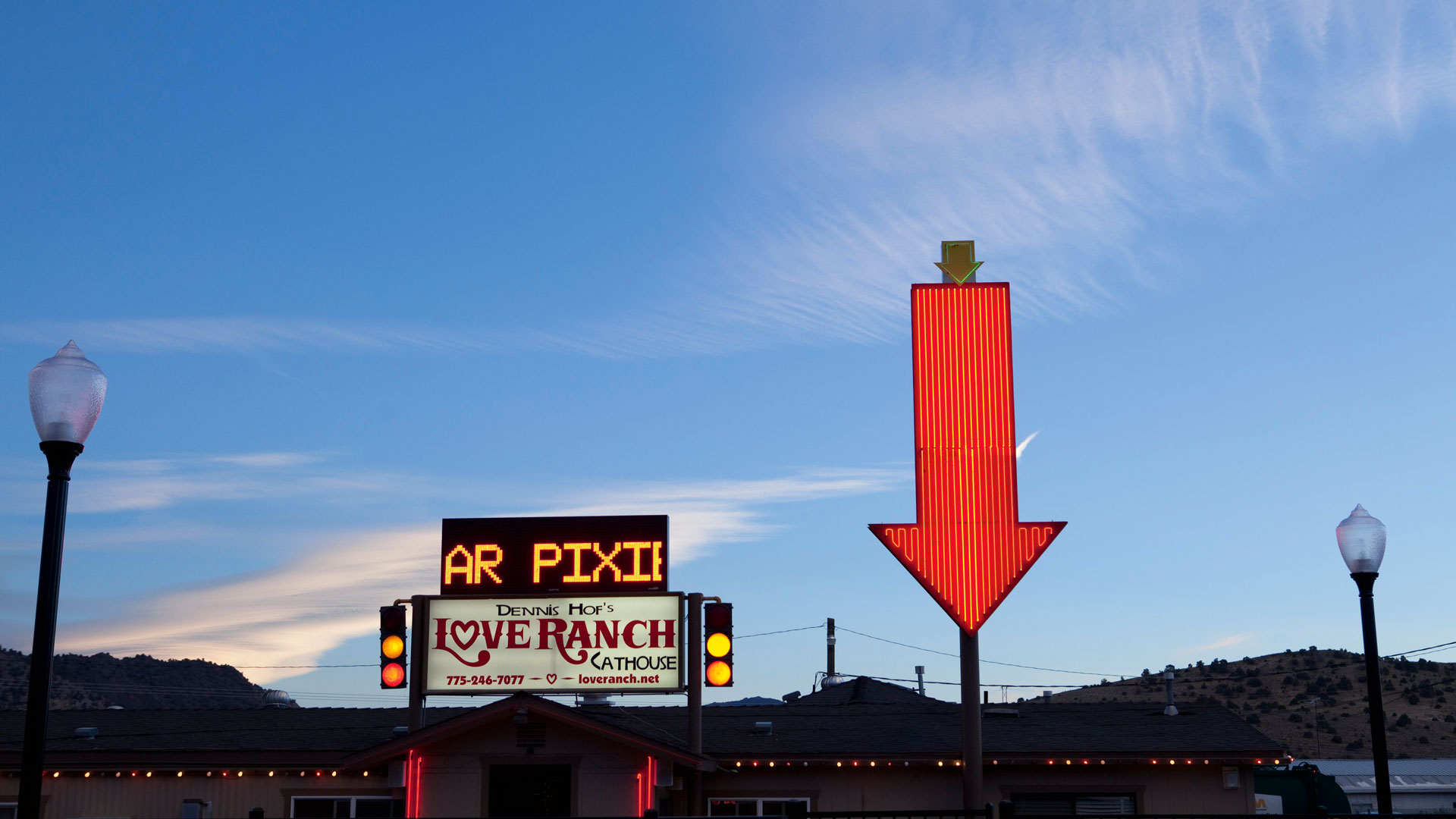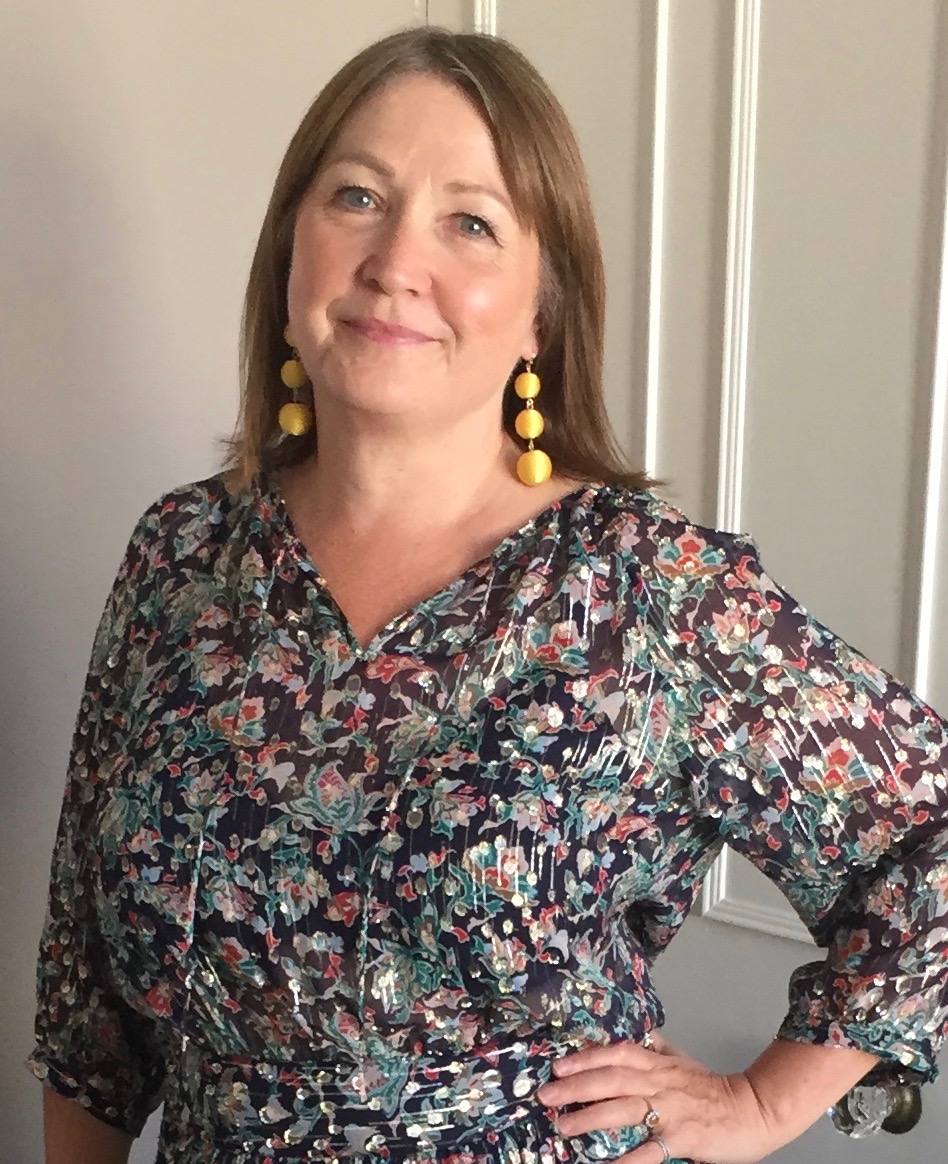Bonnie Blue, rising misogyny, and the future of sex work – is now the right time to decriminalise it?
In an era of resurging misogyny, would decriminalising sex work do more harm than good?


Sign up to our free daily email for the latest royal and entertainment news, interesting opinion, expert advice on styling and beauty trends, and no-nonsense guides to the health and wellness questions you want answered.
You are now subscribed
Your newsletter sign-up was successful
Want to add more newsletters?

Daily (Mon-Sun)
woman&home Daily
Get all the latest beauty, fashion, home, health and wellbeing advice and trends, plus all the latest celebrity news and more.

Monthly
woman&home Royal Report
Get all the latest news from the Palace, including in-depth analysis, the best in royal fashion, and upcoming events from our royal experts.

Monthly
woman&home Book Club
Foster your love of reading with our all-new online book club, filled with editor picks, author insights and much more.

Monthly
woman&home Cosmic Report
Astrologer Kirsty Gallagher explores key astrological transits and themes, meditations, practices and crystals to help navigate the weeks ahead.
If access to paid sex becomes easier, would it act as a way to help protect sex workers and keep them safe, or would it inadvertently fuel the violence against women and girls endemic? It's a question at the forefront of many minds right now, and one with so many layers of complexity, it's hard to know where to start with answering.
Last night's Channel 4 documentary 1000 men and me: The Bonnie Blue Story further complicates the situation. The hour-long show follows OnlyFan's Bonnie Blue (real name Tia Bellinger) as she attempts to sleep with 1,000 men in 12 hours, and her 'work' isn’t seen as a moral issue at all - it’s a business decision.
But Blue isn't a sex worker, she's a 'content creator', her business model being to have sex with men for free, the footage of which she then uploads to OnlyFans for her subscribers to buy online. Her family, who are all on her payroll, are fully behind her career choice. Her mother, Sarah, is unapologetically supportive – even joking on camera, “If you could earn a million pounds in a month, your morals would change and you’d get your bits out.”
It feels like the renewed discussions of decriminalising sex work in the UK, and organisations like the English Collective of Prostitutes (ECP) pushing for it, comes at a time when misogyny is rife and the lines between women's empowerment and exploitation is becoming increasingly blurred. After all, if sex work is just another service, as Bonnie Blue’s team would insist, why would it be considered a criminal offence at all? Are we entering a new era of recognition, or legitimising a culture that too often celebrates misogyny?
Calls for change
In the UK – except Northern Ireland – exchanging sex for money is legal. It’s the law around finding clients that lands sex workers in trouble. Loitering for business, working with others inside premises and advertising sexual services are all outlawed under the Sexual Offences Act 2003. With Bonnie Blue advertising her 'services' on social media, is this indeed blurring lines?
Advocates say this criminality drives sex work underground. They call for decriminalisation – the end of all prostitution-specific laws, requiring sex workers to simply abide by the same employment, planning, health and safety rules as the rest of us.
‘In countries where sex work has been decriminalised, criminal laws have been replaced with health and safety rules, and we need the same here,’ says Laura Watson of the ECP. ‘We don’t think women should have to choose between simply making ends meet and breaking the law.’

The issue of sex work has reached the streets
The ECP estimates there are around 73,000 sex workers in the UK, 88% of whom are female. When times are tough economically, the numbers rise. An ITV Wales This Week report in 2024 found the number of women selling sex in Wales had almost doubled in 18 months.
Sign up to our free daily email for the latest royal and entertainment news, interesting opinion, expert advice on styling and beauty trends, and no-nonsense guides to the health and wellness questions you want answered.
‘The lifelong impact of criminalisation is immense, considering most women are just trying to get by, and to feed themselves and their children,’ says Laura.
The stigma created by criminality leads to increased violence against sex workers, with victims feeling unable to report rapes and other assaults. One investigation, involving 402 workers over nine years, showed the mortality rate of women in the industry was 12 times higher than in the general population.
‘The laws in the UK serve no purpose other than to persecute sex workers, preventing them from working together for their safety,’ says Laura. ‘And they can’t report violence without fear of being prosecuted themselves.’
Some women have been able to move their business online to reduce the risks of violence, screening clients ahead of appointments and swapping warnings about potentially dangerous punters. In a study of 641 UK sex workers by Leicester University, 80% reported that the internet had improved the quality of their working life.
Sex and the law
Recognising the challenges, the National Police Chiefs’ Council (NPCC) recommends not criminalising women, who are often vulnerable, and instead targeting their male clients – the so-called Nordic model. Avon and Somerset Police has been an early adopter of this strategy for its Op Boss operation in Bristol.
Officers in plain clothes are sent out to safeguard female sex workers and disrupt men buying sex. The force also works with Night Light – a collaboration between the police, children’s charity Barnardo’s and the city council – to give out condoms and rape alarms to sex workers, and speak to them about young people who are at risk.
Yet where laws criminalise only the clients – as happens in Sweden, Norway, Iceland and Canada – it can still push prostitutes into dangerous situations to protect their customers. An LSE report said 96% of those it had interviewed found the Nordic model of legislation to be unsafe. And where sex work is legal but regulated – places such as the Netherlands, Germany, Thailand, and Nevada in the US – the concern remains of a two-tier system, with the most vulnerable workers remaining illegal and outside the law’s protection.
In Belgium, New Zealand and some Australian states, on the other hand, prostitution is a business like any other. According to the ECP, 90% of sex workers in New Zealand reported improved employment, health and safety rights since decriminalisation in 2003, while 65% found it easier to refuse clients and 70% said they were more likely to report incidents of violence to the police. Decriminalisation returns control to the women themselves.

A neon sign points to the Love Ranch, a brothel located on the outskirts of Carson City, the state capital of Nevada, where prostitution is legal
Challenges ahead
We might all agree that those working in the sex industry should be protected, but there are problems. In 2014, Britain’s first legal red-light zone was trialled in Holbeck, Leeds. The scheme was scrapped in 2021, with residents claiming schoolgirls had been propositioned, sex had taken place in gardens, and discarded condoms and needles had been found.
There are other questions too. Would you want a brothel operating in your neighbourhood? And would decriminalisation legitimise the exploitation of women?
The Netflix drama Adolescence recently fuelled a national debate around the issue of toxic masculinity, with concerns that influencers like Andrew Tate are creating a new generation of misogynists. Then there’s online porn star Bonnie Blue, who hit the news back in January for sleeping with 1,000 men in 12 hours, and is all over the media once again following the release of a new Channel 4 documentary 1000 men and me: The Bonnie Blue Story on 29 July. With voices like Tate’s and Blue’s in the ascendant, is it really a good time to be encouraging poor male behaviour?
Actor and sex worker rights advocate Megan Prescott, whose podcast Really Good Exposure explores inequalities in women’s work, acknowledges many people would be uncomfortable living next door to even a well-run brothel – but says it’s unlikely to happen. She also stresses the importance of focusing on consensual sex, not turning a blind eye to the exploitation of vulnerable females.
‘People think of brothels as being seedy places with men trafficking women – but in a decriminalised system, women would be free to report instances of assault or coercion without fear of being prosecuted. There would be planning rules that would prevent random brothels popping up in residential areas – just like a nightclub would be prevented in doing so.’
Megan, who as a teenager played Katie Fitch in E4’s Skins, has spoken about her time working as a stripper. She is a trustee for National Ugly Mugs, a charity working towards making sex work safer.
‘It’s a moral judgement, and we’re all entitled to that,’ she says. ‘But you can’t police others for doing something you don’t agree with, as long as they are not hurting anyone else.
‘The fact is, sex work is not going away, so the choice is between making it more dangerous and punishing those involved, or making sure women are safer and have clear exit routes if and when they want to stop.’
‘We don’t seek to glamorise or promote prostitution,’ says Laura. ‘For most women, it’s a choice out of a bad set of choices, but it’s often a route out of poverty. Rather than worry about an increase in prostitution, people should focus on what is happening to women in poverty. It’s this poverty that’s immoral, not what women do to survive it.’
For some, like Bonnie Blue, sex work isn’t about survival – it’s a multimillion-pound brand. But when glamour and shock value dominate the headlines, is it harder to hear the voices of women working at the margins, who simply want safety, dignity, and the right to leave?
Tell us your thoughts in the comments below.

A version of this article first appeared in the August 2025 issue of woman&home magazine - it has been updated for online. Subscribe to the magazine for £6 for 6 issues.

Michelle Hather has been writing for and editing magazines and national newspapers for more than 30 years. As a working mother, breast cancer survivor and eco worrier (if not quite a warrier) she focuses mainly on issues around women, families, health and the environment.
As well as journalism, Michelle's time is spent plotting grown-up backpacking trips with her husband and helping university students navigate the changing world of media.
You must confirm your public display name before commenting
Please logout and then login again, you will then be prompted to enter your display name.